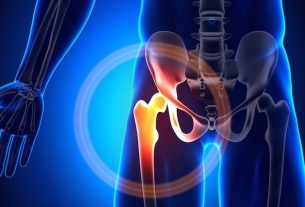Nisulid is a non-steroidal anti-inflammatory, analgesic and antipyretic indicated to relieve various types of mild to moderate pain, inflammation or fever, such as sore throat, headache or menstrual cramps, as it acts by inhibiting an enzyme responsible for producing inflammatory substances. on body.
This remedy can be found in pharmacies or drugstores, in the form of simple tablets or dispersible tablets containing 100 mg of nimesulide, or in the form of a suspension in drops of 50 mg/mL.
Nisulid must be used under medical advice and may be recommended for adults or children over 12 years of age.

What is it for
Nisulid is indicated for:
- Earache;
- Sore throat;
- Fever;
- Menstrual cramps;
- Osteoarthritis;
- Headache;
- Joint pain.
Furthermore, Nisulid can be indicated to relieve toothache or pain after dental surgery, for example.
How to take and dosage
Nisulid should be taken orally, preferably after a meal, to reduce the risk of stomach irritation. This medicine must be taken at the times established by the doctor, and for the shortest possible treatment time. Furthermore, in people with kidney or liver problems, doses should always be adapted by the doctor.
The dosage and way of using Nisulid varies according to its presentation, and includes:
1. Nisulid tablets 100 mg
Nisulid simple 100 mg tablets should be taken orally, with a glass of water.
The normally recommended doses for adults and children over 12 years of age are 50 to 100 mg, that is, half to 1 tablet of Nisulid, every 12 hours, or according to medical advice. The maximum recommended dose is 400 mg of Nisulid per day.
2. Nisulid dispersível 100mg
The 100 mg dispersible Nisulid is a tablet that must be dissolved in 100 mL of water before use. It is important to stir with the help of a spoon, so that the tablet dissolves completely, and should be taken immediately after preparation.
The normally recommended dose of Nisulid dispersible tablets, for adults and children over 12 years of age, is 1 100 mg Nisulid dispersible tablet, every 12 hours, or as per medical advice. The maximum recommended dose is 400 mg of Nisulid per day.
3. Nisulide drops 50 mg/mL
Nisulid drops are found in the form of an oral suspension of 50 mg/mL, and the drops can be dripped directly into the mouth, or diluted in a little water. It is important to shake the bottle before using.
The normally recommended dose of Nisulid suspension, for adults and children over 12 years of age, is 1 drop for every kg of body weight, twice a day, that is, every 12 hours, or as advised by your doctor. The maximum dose per day should not exceed 80 drops of Nisulid. See also other ways to take nimesulide.
Possible side effects
The most common side effects that may occur during treatment with Nisulid are diarrhea, nausea, vomiting or stomach pain.
Furthermore, although it is rarer, itching or swelling of the skin, excessive sweating, constipation, increased intestinal gas, gastritis, dizziness, vertigo, drowsiness or increased blood pressure may also occur.
Who shouldn’t use
Nisulid should not be used by children under 12 years of age, pregnant or breastfeeding women.
This medicine should also not be used by people who have a stomach ulcer, hemorrhage or bleeding in the gastrointestinal tract, blood clotting problems, severe heart, kidney or liver failure, asthma, rhinitis, nasal polyps or hives caused or exacerbated by the use of acid. acetylsalicylic.
Furthermore, Nisulid should not be used by people who are allergic to nimesulide or any other non-steroidal anti-inflammatory drug such as acetylsalicylic acid, ibuprofen or naproxen, for example.

Sign up for our newsletter and stay up to date with exclusive news
that can transform your routine!
Warning: Undefined array key "title" in /home/storelat/public_html/wp-content/plugins/link-whisper-premium/templates/frontend/related-posts.php on line 12
Warning: Undefined array key "title_tag" in /home/storelat/public_html/wp-content/plugins/link-whisper-premium/templates/frontend/related-posts.php on line 13



